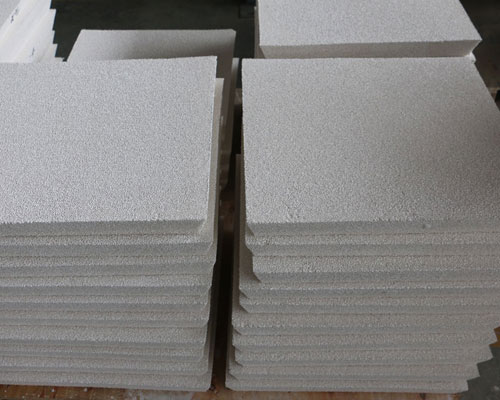Ceramic foam filters are increasingly used in the aluminum industry today. These are special filters made using materials such as silicon carbide and alumina to give them structural stability and thermal shock resistance.
The ceramic foam filter is able to remove oxides from the aluminum surface and thereby improve the quality of the casting. Today more and more aluminum sheet and foil manufacturers use these filters.
Adtech is one of the largest ceramic foam filter foundries in India as well as the global industrial market. The company supplies these high quality filters to its aluminum sheet and foil customers.
Ceramic foam filter supplier Adtech is used to filter molten aluminum in foundries. Our filters have a three-dimensional mesh structure, high porosity and low bulk density. Due to properties such as high temperature resistance and corrosion resistance, these filters are popular with customers.

These products prevent unwanted metal penetration from molten metal, which reduces casting rejects and increases productivity. These filters will not clog even with a large number of impurities in the molten aluminum.
Ceramic Foam Filters filtration is mainly used to filter aluminum and aluminum alloy in the foundries industry. With excellent resistance to thermal shock and erosion, they can effectively remove inclusions, reduce entrained gas, and provide a laminar flow to keep the molten metal clean.
AdTech specially designed Ceramic Foam Filters are made of the basic raw material Aluminium Oxide. They are manufactured with porosities varying from 10 to 60 pores per inch (PPI). Also, combo sets are made in 20-30 PPI and other selections are possible. Different sizes and custom-made filters are manufactured according to specifications.
The filtration efficiency of an aluminum die-cast ceramic foam filter is closely related to its correct installation and use. At the same time, it is impossible to ignore the usual and necessary measures taken to reduce the occurrence of inclusions in technological operations such as smelting, furnace treatment and casting, since the filtration process is applied. It is also necessary to prevent re-contamination of the purified aluminum liquid after filtration.

